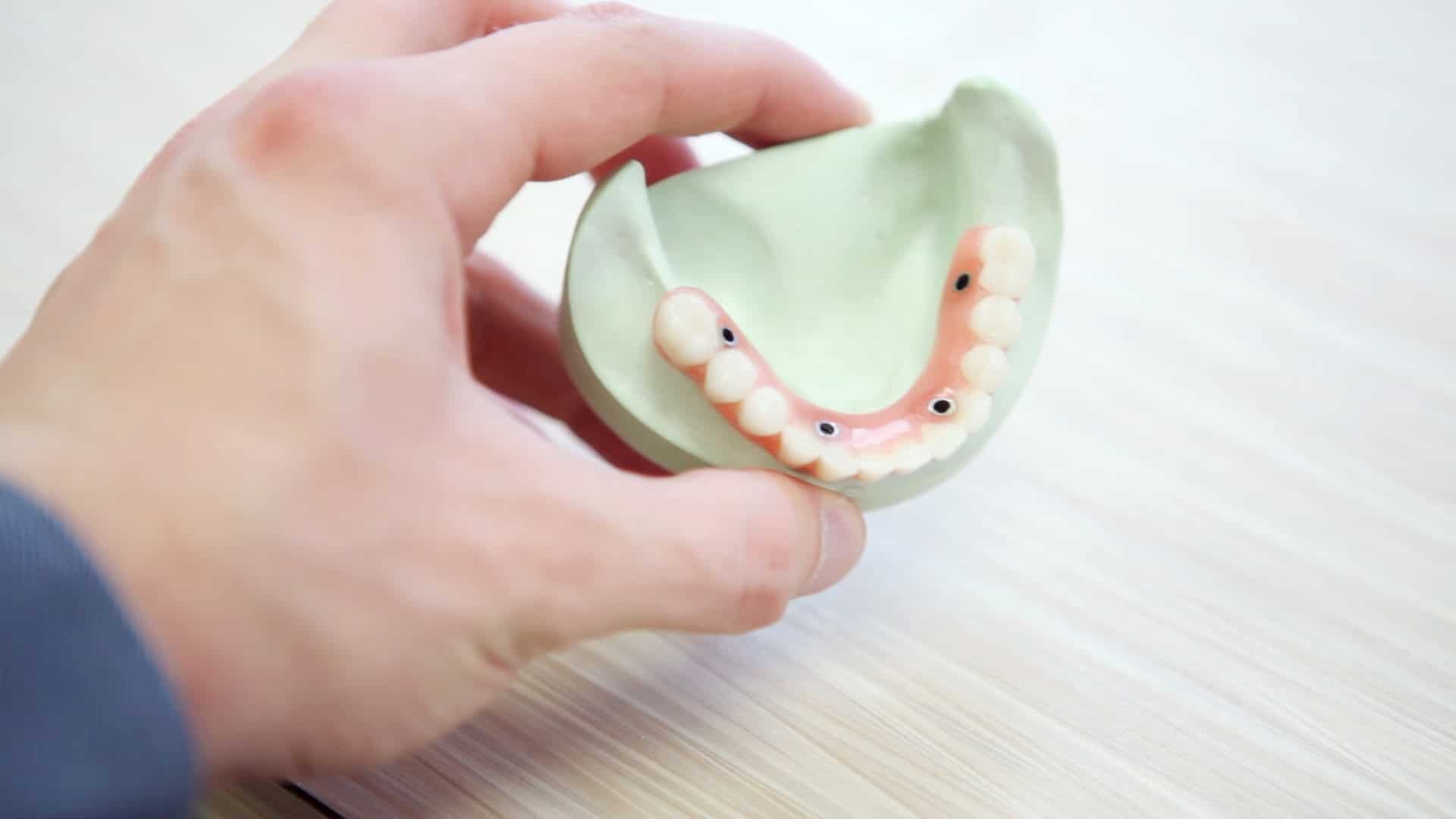
08 May Four Types of Dental Bridges: What’s the Difference?
Dental bridges are a common method for replacing missing teeth. In fact, several different types of dental bridges have been developed for use in various situations. Depending on the position of the replacement, the health of your remaining teeth, and the overall cost, you can get any one of four typical types of dental bridges.
Four Types of Dental Bridges
1: Traditional Dental Bridges
The classic option for filling gaps, traditional dental bridges use crowns on the adjacent teeth as support and smoothly fill the gap left by the missing tooth or teeth. They improve the overall quality of a patient’s life by making eating and speaking easier, restoring their smile, and preventing the remaining teeth from shifting into the gap.
However, traditional dental bridges are not always feasible or the best option for some people. The teeth on either side of the gap must be healthy enough to support the crowns. If the abutting teeth cannot handle the work needed for a crown, that patient will need a different tooth replacement option.
2: Cantilever Dental Bridges
The cantilever dental bridge can be a suitable, lower-cost alternative to a traditional bridge. Cantilever designs only require a single supporting crown for the bridge. This saves on costs for the patient, as only a single tooth must be modified for the procedure.
There are potential issues with these bridges, however. Cantilever bridges are more susceptible to the pressure exerted on the back teeth when chewing. If used to replace a molar, this could lead to eventual failure of the bridge. In such cases, dentists typically recommend another type of dental bridge.
3: Maryland Bonded Bridges
Rather than relying upon abutting crowns, Maryland bonded bridges connect the false tooth to the back of its neighboring teeth with a metal or porcelain frame. Besides some minor etching, a dentist will not damage the tooth’s natural enamel, and no crowns are necessary. A composite resin forms the solidifying bond of the metal frame to the abutting teeth, ensuring a secure fit.
Maryland bonded bridges can also be a great option for children with missing teeth, because they can eventually be removed. Children’s teeth still have many years of growing and shaping to do, and Maryland bonded bridges will allow for future adjustments and better fit their adult smiles.
Of course, Maryland bridges do have certain drawbacks. Like traditional bridges, they require two healthy abutting teeth for attachment. Additionally, they often cannot handle the pressures exerted on the molars. This means that, while they are cost-effective, patients often cannot use Maryland bridges due to the missing teeth’s position and the adjacent teeth’s health.
4: Implant-Supported Dental Bridges
When replacing multiple missing teeth, implant-supported dental bridges offer a long-term solution. Rather than placing crowns on healthy teeth, dentists will fasten the bridge into the mouth using an implant-supported crown.
Implants are incredibly strong, and with proper care, they can last a lifetime. Crowns, on the other hand, require replacement every 15 years. Although implants have a higher up-front cost, they can ultimately save patients thousands of dollars over the course of their lifetime.
One thing to consider is that getting a dental implant is a far more invasive procedure. Additionally, the process usually generally takes several months to complete. Patients in need of immediate tooth replacements, or who are uncertain about undergoing oral surgery, may decide to pursue other options.
What Type of Dental Bridge Would Work Best for You?
Here at Prescott Dentistry, our holistic, biomimetic approach to dentistry drives us to protect the health of our patients’ teeth. And, when tooth replacement is necessary, our dental specialists seek to provide options that will both fill the gap and protect the remaining teeth from further harm.
If you’re considering a dental bridge as a solution, we can advise and support you in choosing the right option. Our holistic care specialists are experienced professionals who will listen to all of your concerns. Contact us today at 928-445-1660 to schedule a consultation for your smile’s health.



